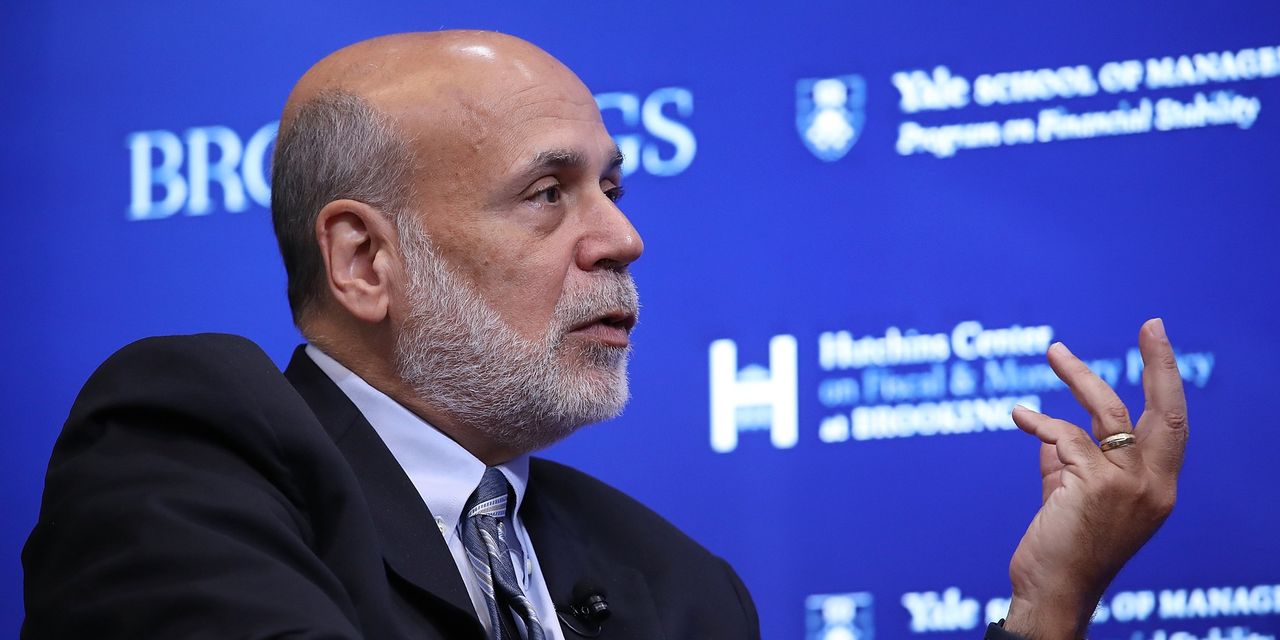Want to understand the impact of Fed Chairman Ben Bernanke’s research that won him and two colleagues a Nobel Prize?
It is why economists think the next recession could be of the mild variety instead of a deep downturn à la the 2008 financial crisis.
In their work, Bernanke, Douglas Diamond and Philip Dybvig examined the causes of the Great Depression, finding that it wasn’t simply due to a stock-market crash, as had become the conventional wisdom.
They found that there were “a series of accelerants” that deepened the economic catastrophe, notably a wholesale failure of banks, said Carl Tannenbaum, chief economist at Northern Trust.
The practical expression of this work has had a meaningful and positive impact on people’s lives, Tannenbaum told MarketWatch in an interview on Monday.
Put simply, in a financial crisis banks find they have good assets and bad assets. When banks suffered losses from their bad assets, they had to sell good assets to raise money and soon there was no distinction between good and bad, said Robert Brusca, president of FAO Economics.
The research from the three Nobel winners laid out a cogent road map for the Federal Reserve to stem the 2008 crisis, when banks found that highly rated mortgage debt on their books was suddenly worthless.
The Fed intervened massively, setting up credit facilities, where the Fed took unwanted bank assets in return for government debt, bond-buying or quantitative easing by the central bank, and assistance to large struggling financial giants like AIG
AIG,
These programs created a bulwark against another wholesale set of bank failures as happened in the Great Depression, Tannenbaum said.
The Fed, with the help of the Treasury Department, also launched bank stress tests that continue to take place annually.
“Bernanke knew banks need to be self-sufficient and cover the risks they took,” Tannenbaum said.
Today, because banks are better capitalized, economists are talking about “a mild recession” in the next 18 months rather than another crisis like 2008, Tannenbaum said.
Banks “have more skin in the game now,” he said.
Of course, the “bailout” of Wall Street has been controversial and unpopular, especially since in came with no commensurate rescue of Main Street. This imbalance has reverberated in American politics ever since.
“It took a lot of courage to put this research into action. Bernanke knew it would attract a lot of criticism for being inequitable,” Tannenbaum said.
Yet, the Fed has never been able to explain that the rescue helped everyone, he added.
Left-leaning economists were scathing about the award of the Nobel prize for this research.
Professor James Galbraith, an economics professor at the University of Texas, said that if the Swedish committee “wanted people to believe that mainstream economists understood banking crises since the early 1980s, that is a rewriting of history.”
He noted the U.S. economy has faced a series of cascading financial bailouts starting with the Savings and Loan crisis of the 1980s and 1990s.
Some Wall Street financial pundits were also unhappy with the choice.
Axel Merk, president of Merk Investments, wrote on Twitter that the popular backlash against capitalism “is but one of the dire consequences of the Bernanke era. That’s a problem; we are celebrating the person who is oblivious to the political fallout of his policies.”
Now read: Why former Fed chief Bernanke and two others won the Nobel economics prize
